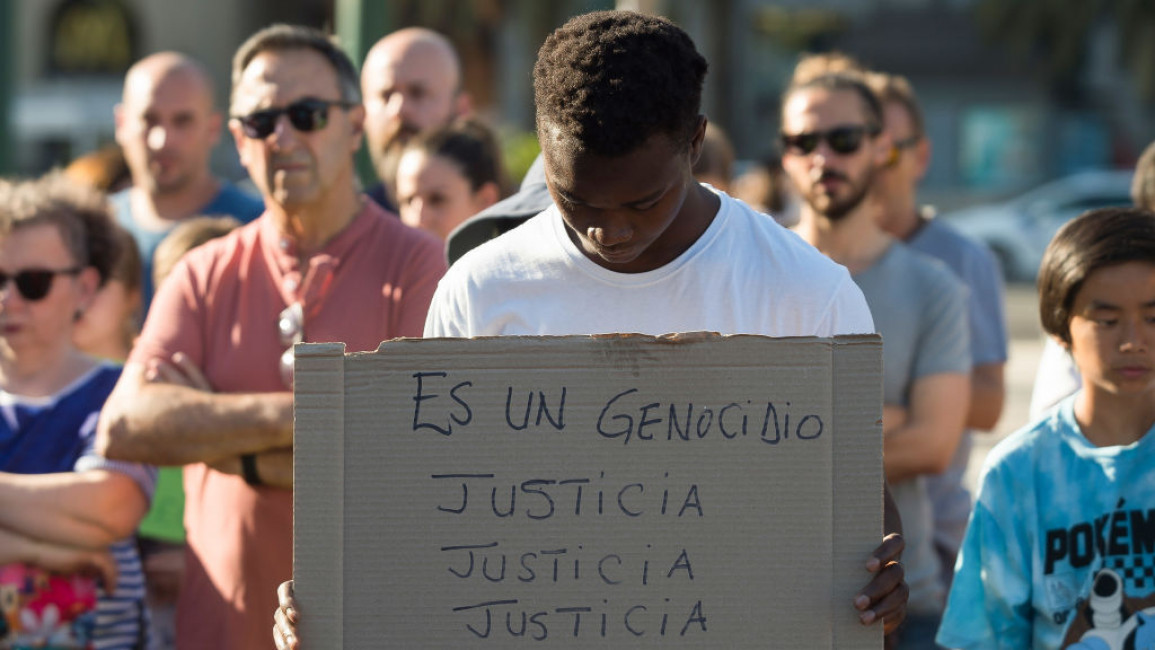Who to blame for the Melilla tragedy?: Morocco and Algeria trade accusations, Spain remains silent
Morocco and Algeria have leapt into a new "J'accuse" tit-for-tat at each other after the "Melilla tragedy" this past Friday, when Moroccan forces, with their Spanish peers, allegedly killed more than twenty migrants who attempted to cross from the Moroccan city of Nador into the Spain-controlled city of Melilla.
Moroccan authorities said 140 of its forces were injured during "the clashes", while the numbers of dead migrants reported by Moroccan and Spanish human rights organisations have ranged from 23 to 37.
On Monday, Rabat's embassy in Spain said in a statement to the Spanish media that "the attackers" [in reference to the migrants] infiltrated through the Moroccan-Algerian border, taking advantage of "the deliberate laxity" of Algiers' control of its borders with Rabat.
"The extreme violence of the assailants and the strategy of the assault denotes a high sense of organisation and a hierarchical structure of trained leaders with profiles of experienced militiamen in conflict zones," the Moroccan embassy's statement added.
Since 2016, Algerian authorities have deported more than 18,000 sub-Saharan migrants to what is known as "Point Zero": a desert area near the borders of Niger. Hundreds of those deported have died of hunger and thirst in their attempt to reach a nearby country, according to infomigrants.
Amar Belani, Algeria's special envoy for the Maghreb and Western Sahara at the Algerian Ministry of Foreign Affairs, was quick to respond to Morocco's accusations.
"The Moroccan regime does not have the courage to bear the shame. It is therefore always looking for a scapegoat to escape its responsibilities," said the Algerian diplomat in a statement to the Algerian state-owned media Echorouk on Tuesday.
He also called on Rabat to admit "its wrongful settlement" of the situation of migrants instead of "throwing stones dishonestly at his neighbours".
Meanwhile, Madrid's officials have avoided wading between the two tussling North African neighbours.
On Tuesday, Margarita Robles, the Spanish defence minister, in an interview with the Spanish media Canal Sur refused to comment on the Moroccan accusations against Algeria.
For his part, Spain's foreign minister in an interview with the Europa press said: "You will never find me on the side of those who assign responsibilities without knowing what happened."
He added that a joint investigation between Morocco and Spain has been launched "to know what happened" on Melilla borders last week.
A newly shared video by the AMDH shows forces dressed in Moroccan uniforms actively beating cuffed migrants piled on the ground.
The UN, AMDH, and tens of Moroccan and international NGOs have condemned the "unjustified" violence used against the asylum seekers and have called for an independent probe into the Friday events.
In a press statement co-signed by 45 Moroccan and Spanish NGOs, AMDH said on Monday that the Melilla migration tragedy is "a warning to us about the deadly nature of the Moroccan-Spanish security collaboration on immigration."
This is the first immigration crisis that has erupted on the Spanish-Moroccan borders since the two countries established cooperation in March after a year-long diplomatic crisis.



